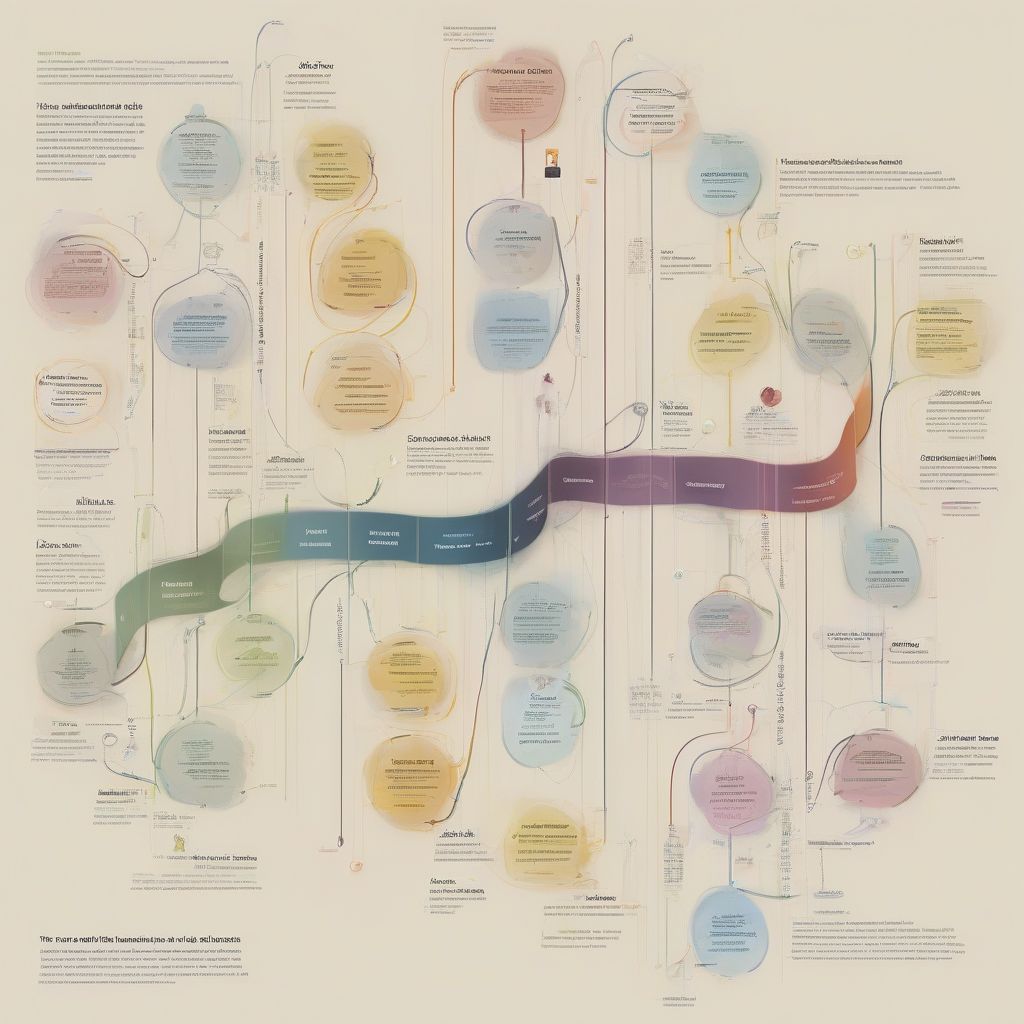Have you ever felt a shift in perspective when rereading a beloved author’s works? That subtle (or sometimes dramatic) change in themes is like witnessing the metamorphosis of a butterfly. It’s a testament to the author’s own journey, mirroring their intellectual and emotional growth through the inked pathways of their narratives.
But how can we, as readers, actively trace this fascinating evolution? How can we move beyond simply enjoying the story and delve deeper into the author’s mind?
This exploration isn’t about finding a singular, definitive answer; it’s about embarking on an intellectual adventure, piecing together clues and patterns to understand the tapestry of an author’s thoughts over time.
Delving into the Literary Timeline
The first step in our journey involves a bit of literary archaeology. We need to arrange the author’s works chronologically. This timeline becomes our roadmap, revealing potential shifts in themes across their career.
 The Evolution of Literary Themes
The Evolution of Literary Themes
Examining the Early Works: Seeds of Inspiration
Early works often offer a glimpse into the author’s nascent thoughts and concerns. Themes explored in these initial creations might be less refined, more exploratory, but they lay the foundation for future explorations. Pay close attention to:
- Recurring Motifs: Are there specific images, symbols, or ideas that appear repeatedly? These could be early indicators of themes the author finds captivating.
- Character Archetypes: Do certain character types consistently appear? The author might be drawn to exploring particular facets of human nature.
- Social and Historical Context: Consider the time period when the author began writing. What were the prevailing social norms, political climates, and cultural influences?
Charting the Mid-Career Developments: Maturation and Refinement
As authors mature, so do their themes. They might delve deeper into previously explored topics, adding layers of complexity and nuance. Alternatively, they may venture into entirely new thematic territories, reflecting personal growth or a changing world. Look for:
- Shifts in Tone and Style: Does the author’s writing become more introspective, experimental, or cynical? Changes in style can reflect an evolving perspective.
- Thematic Complexity: Are themes intertwined in more intricate ways? The author might be exploring the interconnectedness of ideas.
- Character Development: Do characters grapple with more sophisticated moral dilemmas? This can indicate the author’s evolving understanding of human nature.
Unraveling the Later Works: A Culmination of Ideas
An author’s later works often represent a culmination of their lifelong exploration of themes. They may revisit earlier ideas with fresh perspectives, offering a more profound understanding. Consider:
- Reconciliation and Resolution: Does the author offer closure on lingering questions or unresolved themes from earlier works?
- A Sense of Legacy: Are there overarching messages or insights the author seems to be imparting?
- Experimentation and Innovation: Some authors use their later works to experiment with new styles or genres, pushing the boundaries of their thematic explorations.
Beyond the Text: External Influences
An author’s themes aren’t born in a vacuum. They’re shaped by a multitude of external influences, including:
- Biographical Events: Major life events, personal relationships, and societal changes can significantly influence an author’s thematic focus.
- Intellectual Influences: The books they read, the art they consume, and the thinkers they admire can all leave their mark on an author’s work.
- Historical Context: Major historical events and cultural shifts can inspire authors to grapple with contemporary themes in their writing.
The Power of Critical Analysis
Tracing the evolution of an author’s themes is an active process that requires careful reading and critical analysis. Here are a few tips to enhance your exploration:
- Take Detailed Notes: Jot down recurring motifs, thematic connections, and any shifts you observe.
- Engage in Discussions: Share your observations with other readers. Different perspectives can offer valuable insights.
- Consult Scholarly Works: Literary criticism, biographies, and author interviews can provide invaluable context.
[amazon bestseller=”literary criticism”]
Conclusion: A Journey of Discovery
Tracing the evolution of an author’s themes is a rewarding journey that deepens our appreciation for their work and offers insights into their intellectual and creative development. It’s a reminder that literature is a living, breathing entity, constantly evolving alongside its creators. As you delve into the works of your favorite authors, embrace the thrill of the hunt, the joy of discovery, and the satisfaction of uncovering the intricate tapestry of thought woven through their words.
